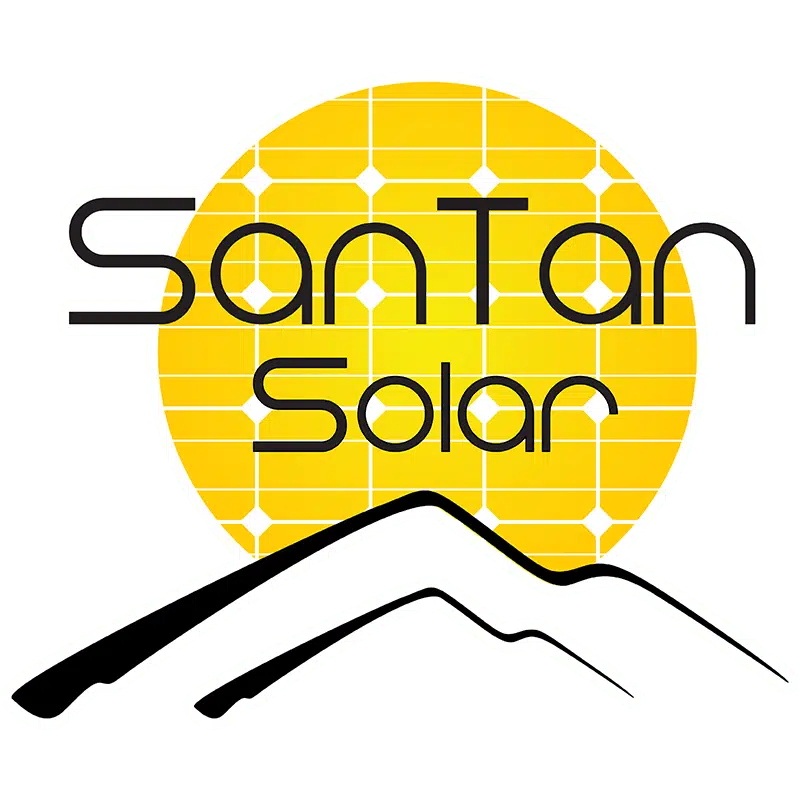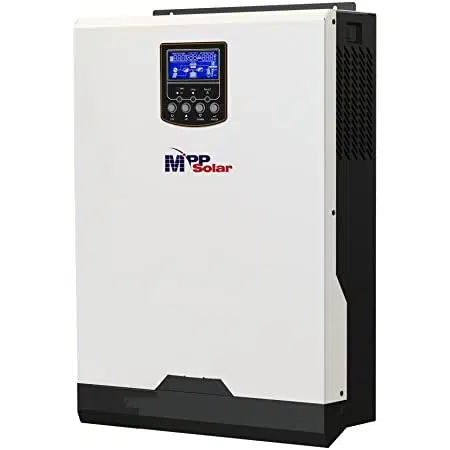Electricity produced by your solar panels and left in your battery storage is useless without the proper equipment to harness all that energy. A solar panel system requires a method to transport and convert stored electricity into your home safely and efficiently.
Inverters are crucial to set up your solar panel system, and getting the right one can be a bit confusing without some help. This guide will introduce you to everything an inverter does, how it works, and, most importantly, how to choose one for your unique situation.
WHAT IS AN INVERTER?
The most basic function of an inverter is to turn DC (Direct Current) into AC (Alternating Current).
Home appliances can’t use electricity from your battery storage without converting it into AC. Since batteries and solar panels require a DC to work, inverters are mandatory for any solar panel system to function correctly.
Solar panel inverters also act as a safety net for your system. If it senses something in the chain is amiss, it turns off. This protects your home in case of electrical problems, malfunctions, and so on.
Setting up safety features such as fuses, insulation, and breakers are still required for your system. But, of course, the more safety features to fall back on, the better!
HOW DO INVERTERS WORK?
To understand how inverters function, we first need to learn how electricity generates and moves in a solar panel system.
A Direct Current simply means the electricity flows in one direction. Solar panels and batteries use DC because electricity or electrons flow in one way and then out another. Since electricity is coming from one main direction (the sun), you can’t have a solar panel with an Alternating Current.
An Alternating Current means the electricity quickly reverses direction back and forth. It switches directions about 60 times per second, more or less depending on the inverter. Home appliances and the grid use AC because of how easy it is to transport from location to location. It is also notably easier to shift the voltage for an AC than it is for a DC. DC requires bigger wires and more insulation, which means more potentially wasted electricity.
An inverter simply takes the Direct Current and makes it act like an Alternating Current by switching the flow back and forth as fast as possible. Every inverter does this at different speeds and steadiness. The more advanced the inverter, the better job it does at converting the current back and forth.
WHAT TYPES OF INVERTERS ARE THERE?
There are tons of solar panel inverters on the market, all made for various devices and situations. Still, the main selection for solar panel systems comes down to two different kinds of inverters: modified sine wave and pure sine wave.
WHAT’S THE DIFFERENCE?
A modified sine wave inverter switches the current as if turning on and off a light switch: it’s very abrupt. Pure sine wave inverters switch between the two directions smoothly (but still very quickly!) and make the conversion more akin to a sine wave, hence the name.
WHICH INVERTER IS BEST?
Well, that depends on what you need.
A modified sine wave inverter is a cheaper and less efficient version of an inverter. It works best with more basic appliances, mainly those without a running AC motor or more advanced electronic components. Devices such as tube TV’s, vacuum cleaners, and water pumps will work fine but will likely use a bit more electricity.
The more complex the appliances, though, the less likely they will function properly, or even at all. Devices not suited for the modified sine wave inverter will make a buzzing noise, generating more heat than normal. But if you need a cheap inverter to work basic home appliances, then a modified sine inverter will get the job done.
On the other hand, a pure sine wave inverter is a more expensive, but far more efficient, version of an inverter. It works with most home appliances and helps them run as cleanly as possible.
If you’re planning on running sensitive hospital equipment, microwaves, more advanced TVs, or anything with an AC motor, you need to have a pure sine wave inverter.
WHAT INVERTER SIZE SHOULD I GET?
Solar panel inverters come in different sizes, depending on how much electricity they can intake and output at a time. Knowing which size is right for you depends entirely on how much electricity you will be using throughout the day and how much storage you plan on having.
Consider what home appliances you own. You need to account for everything in your initial estimation, even something as small and mundane as a digital clock.
Another factor to consider is how often you will be using these devices. Ask yourself what you need from day to day.
For Example
- How often do you use the microwave?
- Do you watch TV every day? How long?
- How long do you have your phone or laptop plugged into the charger?
- Will you be running a device all day or just an hour?
- Are you using several appliances at the same time?
- Will you switch between plugging in different devices?
These are the types of questions you must ask yourself.
You must have solar panels and battery storage large enough to handle everything you are considering using each day. That’s why estimating is so essential: it impacts every decision when planning out your solar equipment selection.
That’s also why it’s safer to get a size bigger than you think you need. Being able to use electricity whenever you want or need requires a bit of spontaneity.
You never know when you’ll get more electronics added to your home. So, getting a bigger inverter to start with will save you the trouble of getting a new one later on.
If you’re struggling to figure out calculations, you can use our solar calculator here. You can also reference our blog on solar calculation here. Our blog goes into more detail on how to work out the math and helps the planning process!
WHAT OTHER INVERTER FEATURES SHOULD I CONSIDER?
Every inverter has different strengths and drawbacks. Make sure you consider what aspects are most important to you and your situation.
For example, some inverters are easier to set up than others. If you are doing a lot of the work yourself, easy installation options might suit you best!
If you live in a state with harsher weather conditions, you must consider how durable the inverters are. Look up an inverter’s NEMA rating, or check reviews, to see which can handle constant rain, harsh sunshine, strong winds, or any weather you deal with constantly.
Efficiency comes back to using modified or pure sine wave inverters.
Of course, the more features you have, the more expensive it can end up becoming. Costs can range wildly, but generally, the more you spend, the more features and valuable qualities you’ll have included.
That’s not to say you should throw all your money at the biggest and most powerful inverters. You don’t want one that’s too big or doesn’t have a chance to use the advanced features it may have.
Consider what is crucial for you and your situation, then select an inverter accordingly.
DOES BEING ON OR OFF THE GRID MATTER?
There are a few key differences to be aware of when going on or off the grid, so be wary!
Solar panel inverters on the grid are easier to set up since you don’t need a battery bank. Not to mention, putting the electricity you produce onto the grid will be shaving tons of money off your electricity bill without worrying about battery life and what time of day you use your electronics.
However, being on the grid means power outages will affect you since the inverter shuts off for safety reasons. You’ll also not be completely self-reliant since your home will still connect to the grid. That’s not necessarily a bad thing. But, it’s much more tempting to use electricity if you’re not worried about battery storage and whatnot.
Inverters off the grid take a bit more to set up and require more planning. You need to consider your battery bank and how much electricity you can run during the day and night.
However, being completely self-reliant means you don’t have to worry about electricity bills or power outages on the grid in case of emergencies. It’ll be work, but you will have complete control and save a lot of money.
Lately, there have been hybrid setups with both an emergency battery bank and a connection to the grid. However, you will need to recognize this will cost more initially and require more planning. Despite this, finding a middle ground between both can be beneficial for those interested.
WHAT IF I’M STILL NOT CERTAIN?
Many factors go into selecting an inverter for your home. Being overwhelmed is shared with anyone looking to set up their solar panel system. Luckily, we have a lot of experience helping customers pick out whatever equipment they may need, inverters being no exception!
Please check out our website for various product selections, or contact us with any questions you might have. Are you looking to learn more about anything and everything solar? Check out our blogs and learn from the experts about the benefits and experiences of going solar.

